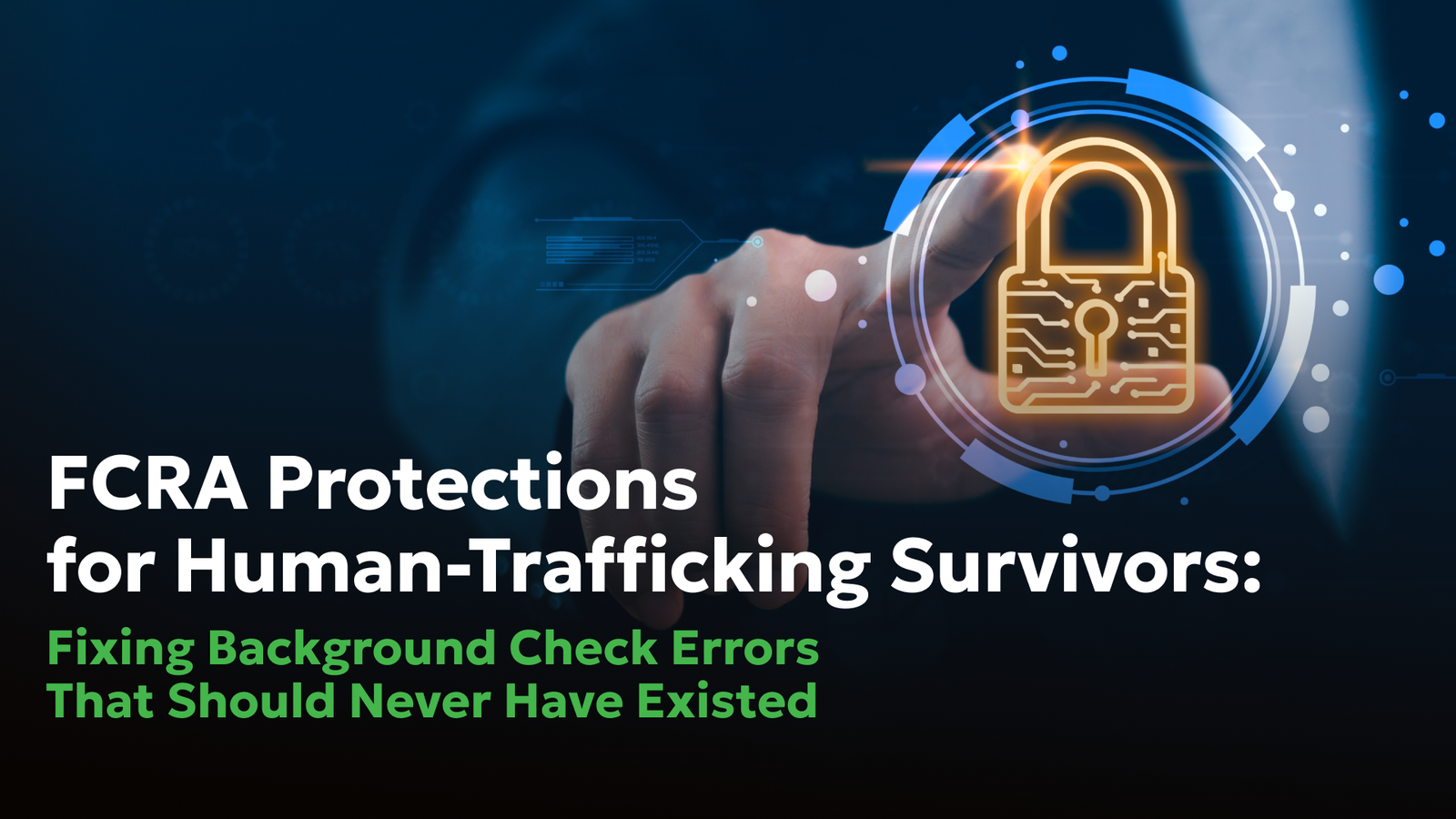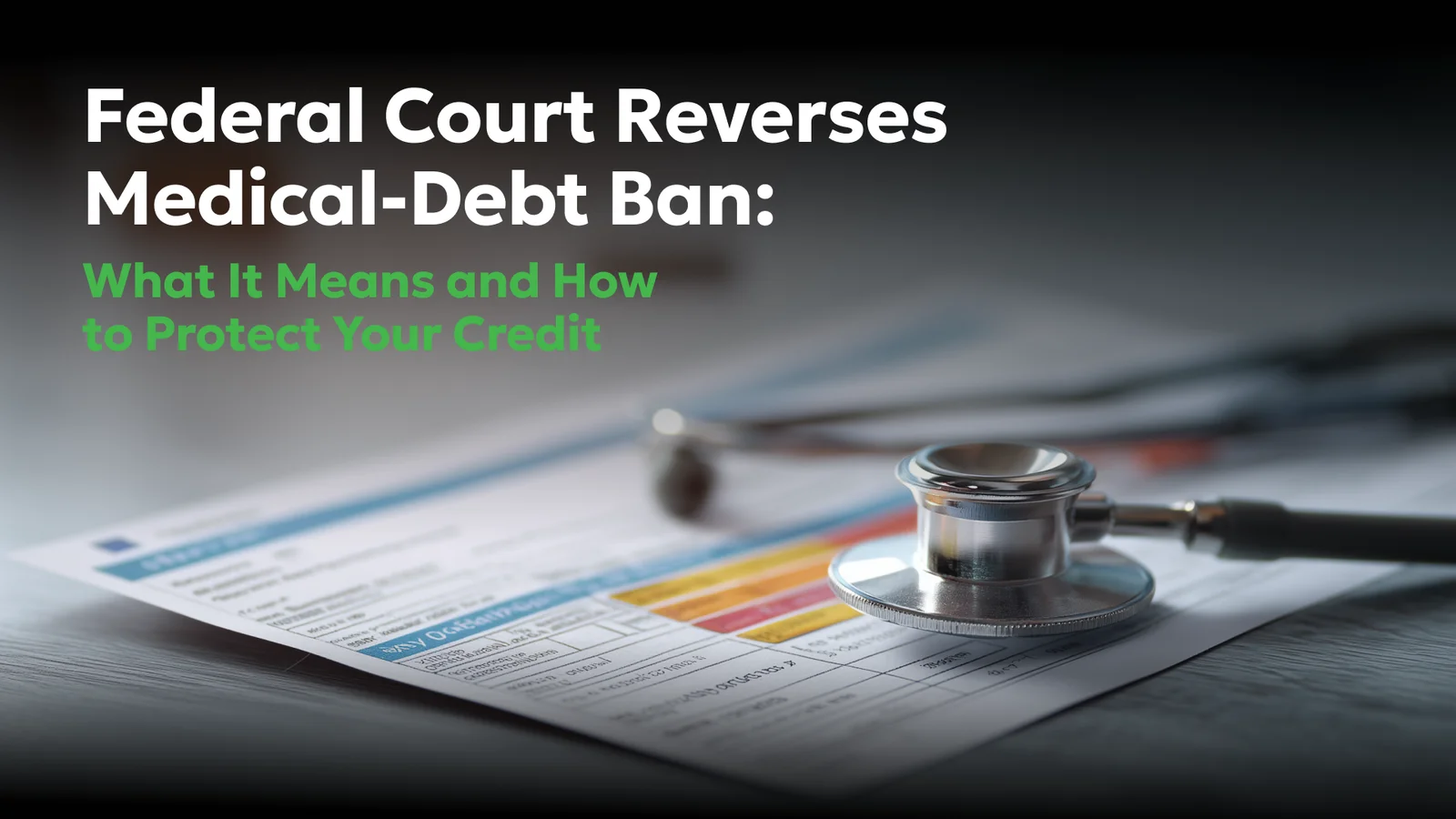How Often Should You Check Your Credit Report for Errors
- Blog
- Credit Reporting Inaccuracies
How Often Should You Check Your Credit Report for Errors

You don’t have to check your credit report every day. But you should probably check it more often than you do.
Like Goldilocks finding the right bowl of porridge in the three bears’ house, you need to find the right frequency to check your credit report for inaccuracies from all three consumer reporting agencies: Equifax, Experian, and TransUnion. There’s no one-size-fits-all answer. Here’s what the lawyers at Consumer Attorneys have learned.
Note that the issue here isn’t if you should check and review your credit reports, it’s how often.
Checking your credit report regularly is essential for maintaining your financial well-being. Any sort of mistake, inaccuracy, or flaw on your credit report can lead to higher interest rates and loan denials. Checking your credit report can help you spot identity theft. As consumer protection lawyers, the attorneys at Consumer Attorneys see the devastation that credit report errors can have on a person’s finances, mental health, reputation, relationships, and overall well-being. While we can help victims recovery from these inaccuracies, we are just as happy to help people avoid this devastation in the first place.
This article will help you determine how often you should check your reports and what to do when you find something amiss.
How to Request Your Report
Requesting your credit report is the first step in ensuring your financial records are accurate. By law, you were originally entitled to one free credit report per year from the three major consumer reporting agencies (CRAs): Equifax, Experian, and TransUnion. During the pandemic, that was unofficially extended to one free credit report per week and that is still the CRAs’ policy. Here's how you can request your report:
- Online. Visit AnnualCreditReport.com and request reports from all three CRAs simultaneously. Or visit each CRA’s website separately and request them individually.
- Phone. Call 1-877-322-8228 to request your credit reports from AnnualCreditReport.com. You'll need to provide some personal information to verify your identity. Or call the number of each CRA available on their websites.
- Mail. Download and complete the Annual Credit Report Request form from AnnualCreditReport.com. Mail it to the address provided on the form. Instructions are also available on each CRA’s website.
Once you receive your report, review it carefully for any errors or discrepancies.
How to Review Your Report
Reviewing your credit report thoroughly is necessary. No skimming. This is necessary to ensure all the information is correct. Here’s a step-by-step guide on how to review your report effectively:
- Personal Information. Verify your name, address, Social Security number, and employment history. Any incorrect information here could indicate identity theft or clerical errors.
- Credit Accounts. Check the list of your credit accounts. Ensure all listed accounts are yours and the account statuses are correct. Look for any unfamiliar accounts or incorrect balances.
- Public Records. Review any public records, such as bankruptcies, foreclosures, or tax liens, to ensure they are accurate and belong to you.
- Inquiries. Look at the section that lists inquiries made by lenders. Verify that you authorized all inquiries.
If you spot any errors, take action immediately to correct them.
When to Request It
Certain situations warrant more frequent checks of your credit report. Here are some key times when you should request your credit report:
Following an Incident That Compromises Your Personal Data
Incidents that compromise your personal data can be alarming and potentially harmful because it means someone you did not authorize (like a thief) has your information. Here are detailed examples of such incidents:
- Data Breach. If a company with which you do business experiences a data breach, your personal information might be at risk. Retailers, banks, and even social media platforms can be targets.
- Lost or Stolen Wallet. Losing your wallet means losing crucial personal information like your ID, credit cards, and possibly your Social Security card. This can lead to identity theft.
- Phishing Scams. If you've fallen victim to a phishing scam and provided personal information, you must check your credit report for any unauthorized activities.
- Suspicious Activity. Do you notice suspicious activity in your bank accounts or receive unexpected bills? This could be a sign of fraud, and checking your credit report can help uncover any unauthorized accounts or transactions.
- Mail Theft. Your personal information can be compromised if your mail is stolen. Thieves can use your bills, bank statements, or other personal mail to commit identity theft.
In any of these scenarios, request your credit report immediately to identify and address potential issues.
Before a Big Purchase
Planning a significant financial commitment? Checking your credit report beforehand and correcting any errors before they become problems can really be helpful.
- Buying a Home. Mortgage lenders will review your credit report before approving a loan. Ensuring your report is accurate can help you secure better interest rates and loan terms.
- Purchasing a Car. Auto loans depend on your credit history. Verifying your report can prevent surprises that could affect your loan approval or interest rate.
- Applying for a Credit Card. Before applying for a new credit card, ensure your credit report is accurate to increase your chances of approval and access to better credit card offers.
- Starting a Business. If you're seeking a business loan, lenders will assess your personal credit report. A clean report can improve your chances of obtaining the necessary funding.
Fixing problems on your credit report before making a big purchase can save you money and stress.
Do It Regularly
Regularly checking your credit report is a proactive way to maintain your financial health. Here’s why you should make it a habit:
- Early Detection of Errors. Regular checks can help you spot errors early, preventing them from affecting your credit score or causing other financial issues.
- Your Recall Capability. Did I inquire about that? What’s that charge? Rather than guessing about charges or accounts on your credit report that you might not recognize, doing so while your memory is good can be helpful.
- Monitor for Identity Theft. Frequent reviews can help you detect identity theft quickly, allowing you to take swift action to minimize damage.
- Maintain Accurate Information. Ensure your personal and financial information is current, especially if you recently moved or changed jobs.
- Your Own Tolerance for Risk. You know your tolerance for risk. You know the degree of suspicion you have for anything that happens online. You know yourself. You can get a free report every week. If that’s what it takes to give you peace of mind and you have the time, check your credit report every week. Otherwise once every three months is sufficient.
Consider setting reminders to check one of your credit reports every four months. This way, you can monitor your credit throughout the year without overwhelming yourself.
What to Do if You Find an Error on Your Credit Report
If you find an error on your credit report, it's crucial to address it promptly. A consumer protection attorney at Consumer Attorneys will help you navigate the dispute process effectively. An attorney will give you legal advice, assist you in preparing and submitting a dispute letter, gather evidence, and protect your rights. They can also guide you through any necessary legal actions if the credit bureaus fail to resolve the issue.
Frequently Asked Questions
Checking your credit score every day won’t hurt you, but there’s really no benefit to doing so. You do, however, have to check your credit report regularly. The three major consumer reporting agencies (CRAs) use your credit report to calculate your credit score, so any inaccuracies or errors in the credit report will impact your credit score. If your score concerns you, then checking your credit report is one way to ensure your credit score accurately reflects your creditworthiness. Contact a consumer protection attorney at Consumer Attorneys for assistance or to learn more about what goes into a credit score.
No. The frequency with which you check your credit score or the intervals between when you check your credit score does not affect the score itself. When you check your credit score through a consumer reporting agency or a credit monitoring service, it is considered a “soft inquiry.” A soft inquiry has no impact on your score. Only “hard inquiries,” when a lender checks your credit for loan or credit card applications, can lower your score. Regularly checking your credit score and credit report is a good practice as it helps you stay informed about your financial health and detect any errors or early signs of identity theft.
Regularly checking your credit report at least once a year is necessary for anyone who prioritizes maintaining financial health. It allows for early detection of errors, ensuring those errors don’t negatively impact your credit score. By reviewing your report, you can better recall charges or accounts, reducing confusion. Monitoring your report helps catch identity theft quickly, minimizing potential damage and keeping your information accurate, especially after changes like moving or job shifts, saves you headaches later. Your risk tolerance may vary, so while checking quarterly is sufficient for most, you can review more frequently for peace of mind. Setting reminders helps you stay on track throughout the year.


Daniel Cohen is the Founder of Consumer Attorneys. Daniel manages the firm’s branding, marketing, client intake and business development efforts. Since 2017, he is a member of the National Association of Consumer Advocates and the National Consumer Law Center. Mr. Cohen is a nationally-recognized practitioner of consumer protection law. He has a we... Read more
Related Articles




R
ONGS™You pay nothing. The law makes them pay.







